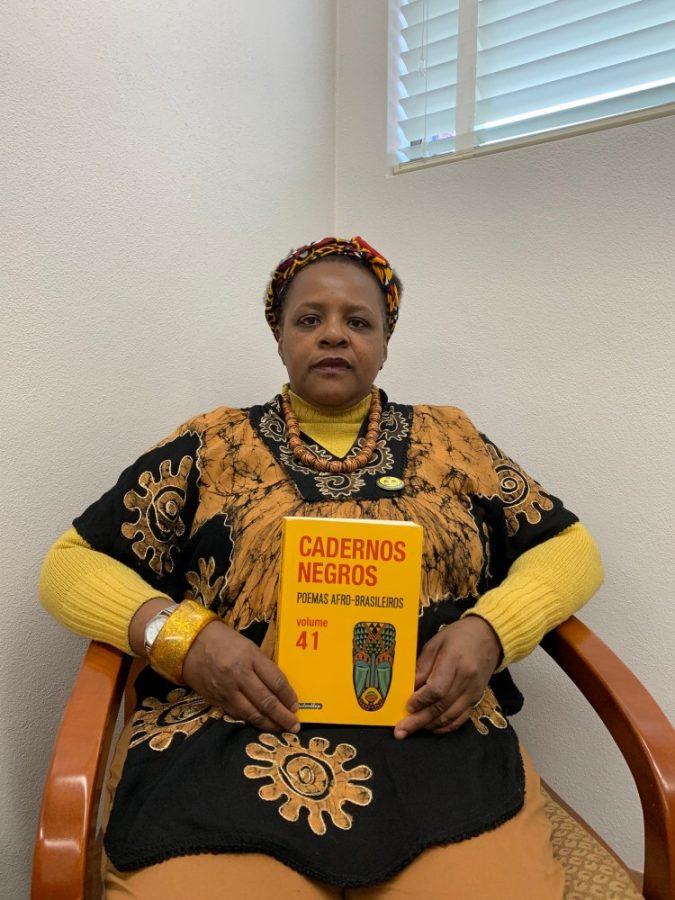Esmeralda Ribeiro knows how imperative it is for Afro-Brazilian women to write and be heard. As a Brazilian journalist and writer of African descent, Ribeiro focuses on the African-Brazillian connection in her writing.
The University of Arizona’s Department of Spanish and Portuguese organized several events, including a reading and lectures series with Ribeiro, where she will talk about her books and her work’s importance.
She has written for several publications and has put together short stories, poems and other forms of writing. In an article titled “Beyond the Curtains: Unveiling Afro-Brazilian Women Writers,” one of her stories was described as something that “captures the multiple skeletons in the Afro-Brazilian communal cupboard, especially as it relates to the central issue of discord and betrayal in the struggle for survival, social mobility and competitive edge.”
RELATED: Transfer students visit Gem Show with UA geologist
This particular story, titled “Malungos e Milongas,” depicts a family that becomes divided by outside forces.
“Sometimes, instead of coming closer together, we fall further apart from one another,” Ribeiro said. “This is a metaphor for the black movement; because of communication issues and problems, we become fractured when we should be pulling together.”
Ribeiro participated in several different activities with the Africana Studies, Spanish and Portuguese and Latin American departments while on campus.
She said the inspiration behind her work is largely from her experiences growing up in São Paulo, Brazil. Ribeiro said it is impossible for her to separate the acts of writing and living — they are one and the same, equally intertwined, each bleeding into the other.
Ribeiro is part of a collective of other writers who together have published Cadernos Negros, which translates to “Black Notebooks.”
As a child, she said she grew up in poor conditions and would collect aluminum cans with her father to sell. However impoverished, Ribeiro’s family was still supportive of her love of writing and encouraged her artistic endeavors.
Ribeiro has fond memories of her mother telling “scary and fantastic stories” in the dark during times when they had no electricity.
RELATED: The UA School of Art makes its way to the Tucson Festival of Books
She credits these experiences with helping her become a better person, in addition to becoming a better writer. On top of supporting her creative ambitions, Ribeiro’s mother also encouraged her to pursue a university degree, which resulted with her earning a degree in journalism.
Ribeiro also said she never knew her own mother dreamed of being a writer until after she passed away. Her sister-in-law had told her about a conversation when Ribeiro’s mother reflected on how she had always dreamed of writing. In an almost perfect full circle, Ribeiro was able to become and do the things her mother had always wanted to do but was unable to.
Ribeiro said she feels she is able to exercise the mission of a journalist, which is to seek truth and report it, back to her writing.
“With writing, you have a lot more creative control, so you can write about things and show them in a way that is creative yet still true,” Ribeiro said.
One important thing to note is that Ribeiro doesn’t always give her readers closure. She tells a story and gives the reader the information they need to make their own assessment and their own ending, she explained.
For more information on Ribeiro or lecture series held by the Department of Spanish and Portuguese, visit its website.
Follow Nicole Gleason on Twitter









